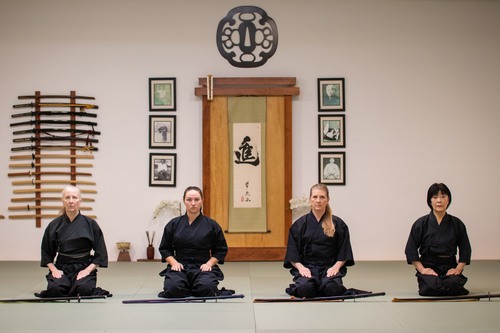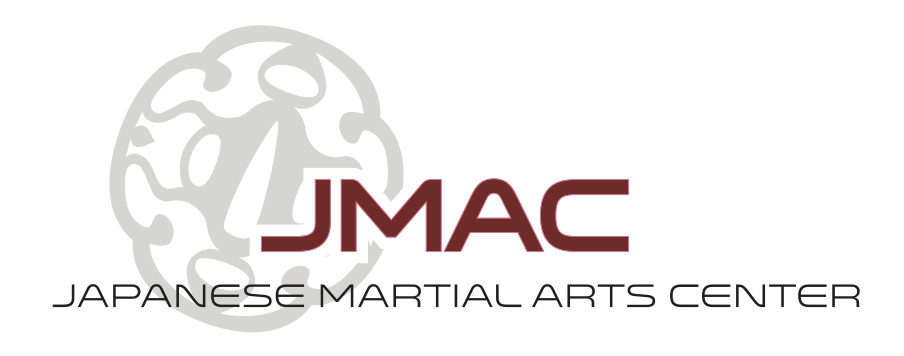Enhancing Communication and Respect in Martial Arts through Japanese Language Basics
Ever wondered how understanding a few key Japanese phrases can enhance your martial arts practice?
Martial arts are not just about physical strength, technique, or discipline but also about fostering respect, communication, and understanding.
One powerful way to deepen these connections is by incorporating the language of the martial arts origins into your practice. For many martial arts practitioners, using basic Japanese words and phrases can create a more authentic and respectful atmosphere in the dojo.
Here are a few key terms that can elevate your appreciation of your martial arts practice.
Key Japanese Terms to Know
1. Hai (はい) – Yes
When you hear "hai" in the dojo, it's an energetic affirmation that means "yes" or "I understand." Students often use this term to show enthusiasm and readiness. For example, when an instructor gives a command, responding with "hai!" shows that you're focused and prepared to follow through.
2. Sensei (先生) – Teacher
"Sensei" is the term used to respectfully address your instructor. It means "born before," symbolizing the wisdom and experience of the teacher. It's a way of showing gratitude for their knowledge and guidance. While commonly used in martial arts, "sensei" can also be applied in everyday situations to show respect to someone with experience or authority.
3. Rei (礼) – Bow
Bowing is an essential part of martial arts culture. "Rei" is the Japanese word for bowing, which is done to show respect to your instructors, fellow students, and the dojo. You'll typically bow at the beginning and end of class, as well as before and after sparring or practicing techniques with a partner. Bowing creates a sense of mutual respect and humility, no matter your skill level.
4. Seiza (正座) – Correct Sitting
"Seiza" refers to the traditional way of sitting on the floor in a kneeling position, often done at the start or end of class. While it may feel uncomfortable at first, sitting in seiza is a symbol of respect and attentiveness in the dojo. Over time, it becomes a meditative posture that helps you focus on the practice and clear your mind.
5. Otagai ni Rei (お互いに礼) – Bow to Each Other
This phrase means "bow to one another" and is often used at the end of class or practice. It acknowledges the importance of respect and camaraderie among students. In martial arts, learning from each other is key, and bowing to your peers is a way of showing appreciation for their role in your training.
6. Onegaishimasu (お願いします) – I Humbly Request
"Onegaishimasu" is a phrase you’ll hear when students prepare to train together. It means "I humbly request," but in a martial arts context, it is a way of saying, "Let’s work together" or "Please teach me." It sets the tone for cooperation and learning, whether you're sparring with a partner or asking your sensei for guidance.
7. Mokuso (黙想) – Meditate
At the beginning or end of class, many martial arts schools observe a moment of "mokuso" or meditation. This short period of silence allows students to clear their minds, focus on the present, and reflect on the lessons they've learned. Meditation helps create a calm, respectful atmosphere in the dojo and encourages mindfulness in both practice and life.

Counting in Japanese
In many martial arts classes, you’ll practice counting in Japanese, especially during warm-ups or repetitions of techniques. Here’s a quick guide to numbers 1 through 5:
- Ichi (いち) – One
- Ni (に) – Two
- San (さん) – Three
- Shi (し) – Four or Yon (よん)
- Go (ご) – Five
Counting in Japanese during practice not only reinforces the language but also helps unify the class, making it easier to follow along with group activities.
Expand Your Understanding of Language with Martial Arts Ann Arbor
Incorporating basic Japanese into your martial arts practice is more than just learning a few words—it’s about deepening your connection to the art. Through language, you can build stronger relationships with your instructors and fellow students, while honoring the traditions that have been passed down for generations.
So next time you're practicing martial arts in Ann Arbor, try using a few of these words with confidence.
Contact our team today to start your martial arts journey!
